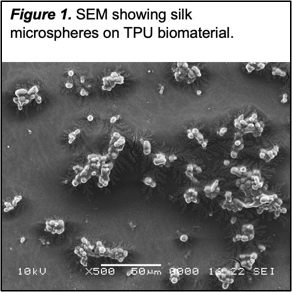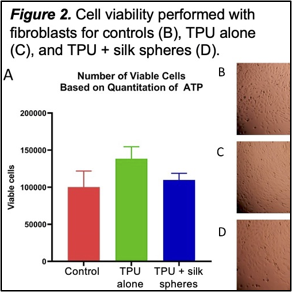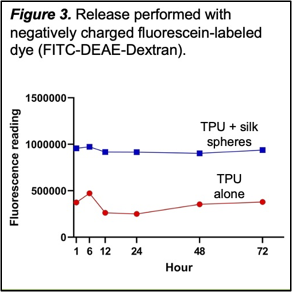Back
Poster, Podium & Video Sessions
Moderated Poster
MP08: Pediatric Urology: Penis & Scrotum
MP08-16: Novel Biomaterial for Slow-Release Drug Delivery to the Urethra
Friday, May 13, 2022
10:30 AM – 11:45 AM
Location: Room 225
Courtney K. Rowe*, Hartford, CT, Christopher Foster, Farmington, CT, Wei Ruan, Kelly A. Burke, Storrs, CT

Courtney K. Rowe, MD
Connecticut Children's
Poster Presenter(s)
Introduction: Urethral healing after surgery or injury is plagued by strictures and fistulas, impacting quality of life and leading to significant medical costs. A variety of growth factors (GFs) have shown promise in animal studies as a therapeutic approach, but without technology to deliver them to the human urethra they are unable to be used clinically. We hypothesize that a novel biomaterial can be developed to deliver slow-release growth factors and other drugs to the urethra to improve healing after surgery or injury.
Methods: A previously described biocompatible thermoplastic polyurethane (TPU) elastomer was selected as the base material to prepare stents. Silk microspheres were chosen to provide drug delivery given their successful use for slow-release of growth factor and other drugs.
Results: The TPU elastomer was modified to replicate the stiffness of silicone urethral stents currently used for hypospadias repair. Silk microspheres were successfully attached and confirmed using scanning electron microscopy (Figure 1). Cell viability studies showed no significant impact on cellular growth from leachable components, confirming a non-toxic material (Figure 2). Loading and release showed sustained slow-release of negatively charged fluorescein-labeled large molecule dye (FITC-DEAE-Dextran, Figure 3). Release of positively charged dye (FITC-CM-Dextran) was the same between TPU alone and TPU with silk microspheres.
Conclusions: Our modified TPU with silk microspheres is capable of successfully providing slow-release drug delivery and is particularly well suited to release negatively charged GFs. Further in vivo and in vitro studies will determine whether urethral healing can be improved with slow-release GFs, or whether delivery of other drugs may be beneficial for patients.
Source of Funding: None



Methods: A previously described biocompatible thermoplastic polyurethane (TPU) elastomer was selected as the base material to prepare stents. Silk microspheres were chosen to provide drug delivery given their successful use for slow-release of growth factor and other drugs.
Results: The TPU elastomer was modified to replicate the stiffness of silicone urethral stents currently used for hypospadias repair. Silk microspheres were successfully attached and confirmed using scanning electron microscopy (Figure 1). Cell viability studies showed no significant impact on cellular growth from leachable components, confirming a non-toxic material (Figure 2). Loading and release showed sustained slow-release of negatively charged fluorescein-labeled large molecule dye (FITC-DEAE-Dextran, Figure 3). Release of positively charged dye (FITC-CM-Dextran) was the same between TPU alone and TPU with silk microspheres.
Conclusions: Our modified TPU with silk microspheres is capable of successfully providing slow-release drug delivery and is particularly well suited to release negatively charged GFs. Further in vivo and in vitro studies will determine whether urethral healing can be improved with slow-release GFs, or whether delivery of other drugs may be beneficial for patients.
Source of Funding: None




.jpg)
.jpg)